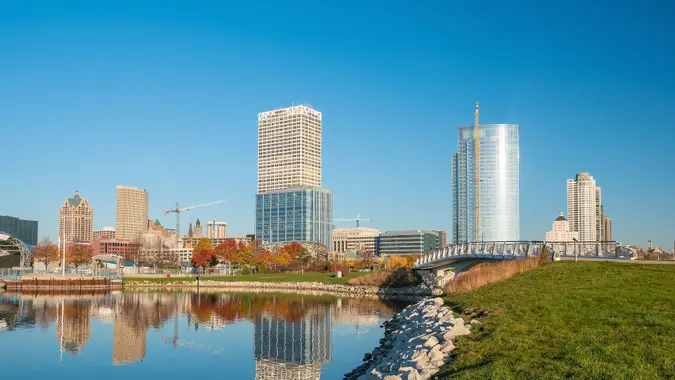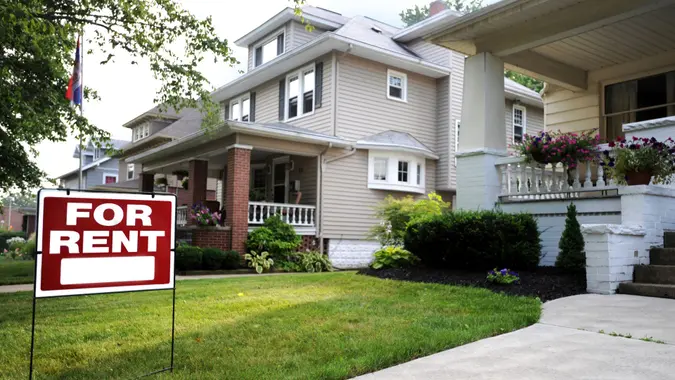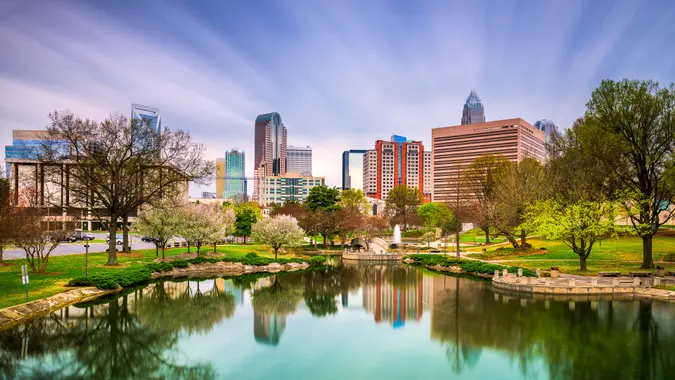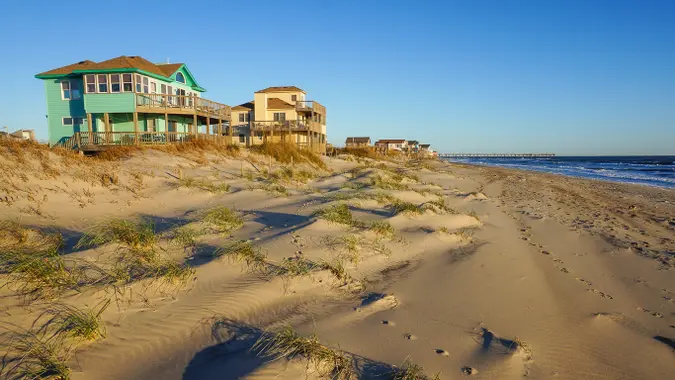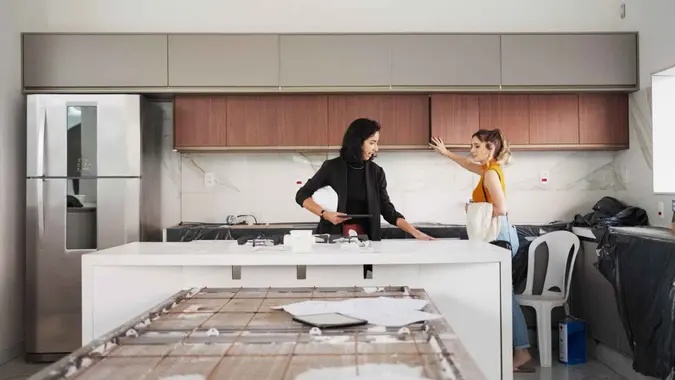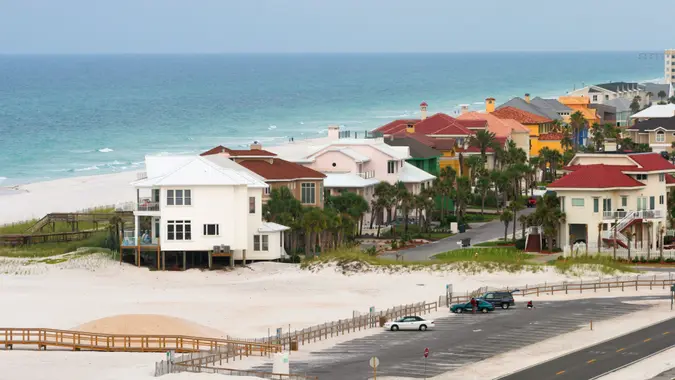How Much Do You Have To Save for Your First Airbnb?

Commitment to Our Readers
GOBankingRates' editorial team is committed to bringing you unbiased reviews and information. We use data-driven methodologies to evaluate financial products and services - our reviews and ratings are not influenced by advertisers. You can read more about our editorial guidelines and our products and services review methodology.

20 Years
Helping You Live Richer

Reviewed
by Experts

Trusted by
Millions of Readers
Looking to invest in your first Airbnb? That’s no surprise considering average daily rates are on the rise and demand continues to surge, according to AirDNA. As short-term rentals become a more lucrative investment, more people are wondering how to get involved.
How much money do you need to launch your first short-term rental? According to the experts, it depends on your investing strategy. Here’s what you need to know.
Decide on Your Short-Term Rental Investing Strategy
Many first-time short-term rental investors are looking to buy a property and rent it out on Airbnb. But in today’s market, saving enough for a down payment is even more difficult than it was just a few years ago. Thankfully, buy-and-hold isn’t the only option anymore, said Michael Elefante, a short-term rental investor who owns and manages six properties.
“The cool thing about Airbnb is that you can really start with any budget and craft or choose which strategy you want to go with depending on your budget,” he said.
For those who have little to no money in savings, co-hosting can be a helpful way to gain experience in the Airbnb market.
“Co-hosting is essentially managing someone else’s property for them or even finding and evaluating a property that could be an Airbnb and presenting it to an investor you network with on Facebook, BiggerPockets, or social media,” Elefante said. “Then, you present it to them with your co-host fee, and they invest.”
Rental arbitrage or corporate housing is another lower-cost option. To use this strategy, you sign a long-term lease with a landlord, furnish the space and rent it out for nightly, weekly or monthly stays.
This strategy has become increasingly popular since the onset of the pandemic. Demand for travel nurses in November 2021 was 85% higher than pre-pandemic levels, providing an additional opportunity for those interested in rental arbitrage.
“If you cater to traveling nurses, there’s a huge demand for that,” Elefante said. “My sister-in-law is a traveling nurse, and she says it was very difficult to come by housing that was furnished and that she could rent out for one to three months at a time based on her contract.”
Save Enough for Upfront Costs
Initial expenses will vary based on which investment strategy you choose. Co-hosting allows you to gain experience in the Airbnb market with no upfront costs. Rental arbitrage, on the other hand, requires a few thousand dollars to get started — or as much as tens of thousands for a luxury home.
“For rental arbitrage, plan for costs associated with setting up the lease,” Elefante said. “It’s usually the first and last months’ rent upfront, the application fees, and then furniture. Then, of course, there are local laws and regulations, so expect to pay a small permit fee or business tax fees to get set up.”
If you plan to buy and hold, you not only have to pay for furniture and décor (unless they are included in the property sale), but you also have to save for the down payment and closing costs.
Down payment options vary among lenders, but in general, you should aim to save about 20% or more of the home’s purchase price. Conventional loans — also called second home loans or vacation home loans — offer lower interest rates as long as you qualify. Be sure to speak with a mortgage lender to understand your options.
“You could take advantage of a second home loan if you plan to use the house for your own personal use and pleasure,” Elefante said. “With the second home loan, the minimum down payment is 10%. Typically, lenders suggest you use the property 14 days a year, but you can rent it out the other days.”
Save Enough To Get Started With Ongoing Expenses
Once you launch your Airbnb, you will need to pay for ongoing expenses. This includes restocking food items and toiletries as well as paying cleaners before each guest’s visit and handymen when maintenance issues arise.
“Investors also need to think about how they plan to manage it,” said Markus Nordvik, short-term rental investor and general manager of Guesty for Hosts. “It’s not an Airbnb until you’re renting it out, and that includes all sorts of operational tasks, marketing, guest communications, managing cleanings, and much more. All of these things can be a bit overwhelming for new operators. But fortunately, that’s where technology can step in and help.”
To make the management process easier, plan to save enough to pay for ongoing subscriptions to tools like channel managers, smart pricing tools and marketing platforms such as Airbnb and Vrbo. Before purchasing your first property, research which tools you want to use and how much they will cost you.
More From GOBankingRates
 Written by
Written by  Edited by
Edited by 



